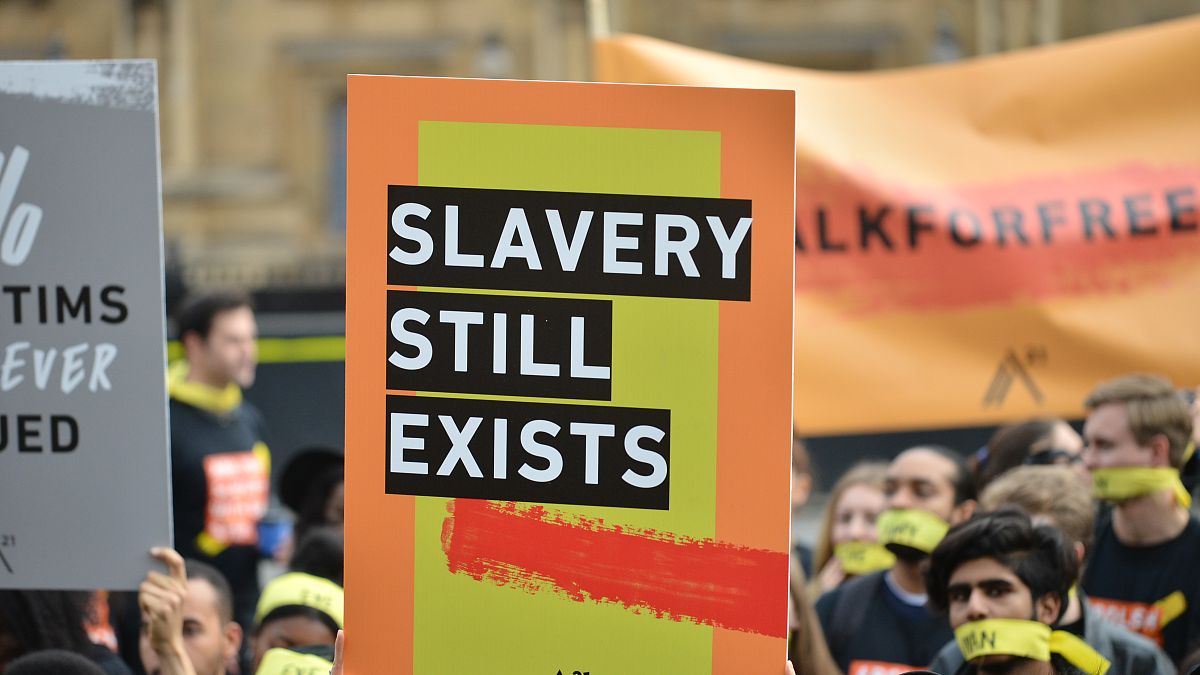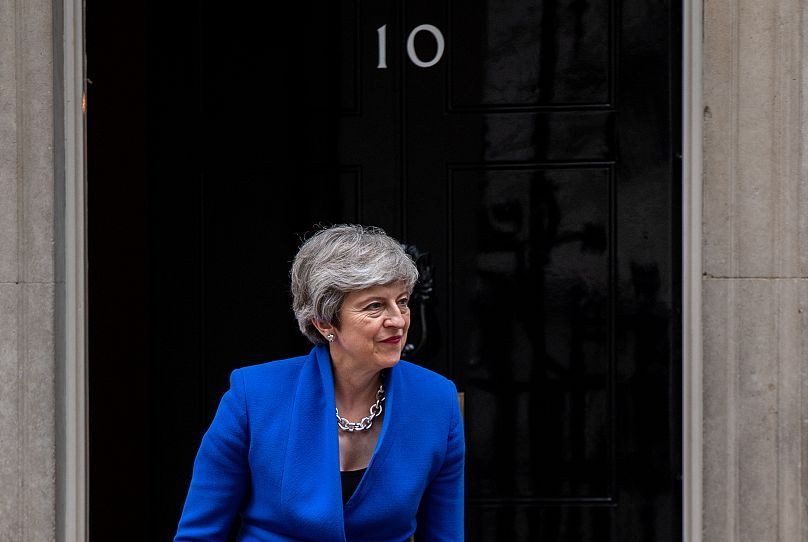Headed up by former British prime minister Theresa May, the Global Commission for Modern Slavery and Human Trafficking seeks to eradicate the ever-increasing issue by 2030.
Modern slavery is "still the greatest human rights issue of our time”.
That’s according to former British prime minister Theresa May who has, this week, launched a new global commission to tackle modern slavery and human trafficking.
The aim of the Global Commission for Modern Slavery and Human Trafficking is to put pressure on governments to return the issue to the top of their political agendas as modern slavery sees an alarming increase worldwide.
It’s perhaps something you wouldn’t immediately associate with Europe but the prevalence here is rising too.
It’s thought that France alone has 135,000 of the 50 million global victims of modern slavery.
Since 2016, the Global Slavery Index and the United Nations estimate that some 10 million more people - up from 40 million - have been forced to work or marry, due to increasingly complex global challenges facing every walk of life.
These vulnerabilities have been compounded further still by climate change, an increasingly digital way of life for millions, conflict - and COVID-19.
The pandemic exacerbated existing issues while creating new ones - from unequal access to healthcare and vaccines as well as increased economic insecurity across Europe.
The negative effects of climate change on agriculture and the food production industry have seen levels of poverty and food insecurity skyrocket and increased displacement for some.
The Index has found that this often desperate exile can lead to ever more exploitation and forced labour on the continent.
Conflict, too, plays a significant part.
The Commission says Russia’s invasion of Ukraine has increased the risk of modern slavery, thanks to mass displacement and forced migration both in-country and across the region.
They found that Russia, along with Turkmenistan, have taken the least action to combat modern slavery and trafficking in recent years.
At the other end of the scale are the UK, followed by the Netherlands and Portugal, who took the most initiative in tackling the issue.
While the findings show that Europe has taken the most action of any region worldwide to tackle forced labour that ends up in global supply chains, it’s not all good news.
The Commission expresses that across all countries, governments must address significant gaps, including expanding the provision of safe and regular migration pathways for the most vulnerable, as well tackling underlying discrimination of migrants and other marginalised groups.
They will be hoping that a number of European nations, which score particularly badly on the Index, will take heed of that advice.
In Russia and Ukraine, it’s estimated that 13 and 12.8 people per 1,000 are currently trapped in slavery.
In Macedonia it’s 12.6 while in Belarus the figure is 11.3 and Albania has 10.8 people per capita defined as slaves.
While the UK, the Netherlands and Portugal are all actively trying to combat the situation, only the Netherlands are in the top 5 countries with the least slavery.
The rich, central and northern European nations Switzerland and Norway (with just 0.5 people per 1,000 in slavery each) are followed closely by Germany, the Netherlands and Sweden, which all have only 0.6 people enslaved per 1,000.
Chaired by Theresa May, the Commission also features prominent members including Grace Forrest, the founder of human rights organisation Walk Free. Nasreen Sheikh, an author and survivor of modern slavery and Sophie Otiende, the Chief Executive of the Global Fund to End Modern Slavery.
Together, their aim is to firm up and support the implementation of every nation’s commitments to ending modern slavery and rooting out forced labour in global supply chains.
They hope to eradicate modern slavery and human trafficking by 2030.
It’s likely to be an uphill battle, though.
“More people are living in modern slavery today than at any time in human history. These crimes exist in all of our societies, and respect neither borders nor jurisdictions. Yet compared to other abuses, our collective responsiveness has been disproportionately weak”, admits Theresa May.
Ahead of the UN’s recent Sustainable Development Goals (SDG) summit, Secretary-General Antonio Guterres observed that only 15% of the SDGs on forced labour, modern slavery and human trafficking are on track – with many seemingly “going into reverse”.
At the summit in September at UN HQ in New York, Guterres called on governments and other stakeholders to “come to the table with concrete plans and proposals to accelerate progress”.
The Commission says it has three clear objectives: to provide high level political leadership, to mobilise the evidence and knowledge base and to promote and facilitate international collaborations and partnerships.
They’ll also embed those with lived experience in both the governance and work of the high-stakes project - and will present their initial report on changes to Guterres in the spring of 2025.
The Commission is currently supported by both the governments of the UK and Bahrain.
In the middle eastern nation, the vulnerability to modern slavery level is 40 out of 100. In the UK, that figure is a relatively low 14.
The Commission says there is an opportunity for other countries to become co-convenors and for further Commissioners to be appointed - and, for now, they are full of hope that eradication of modern slavery and human trafficking is in sight.
“There is no doubt that more than ever we need collective action to address the issue of modern slavery. When policy makers, industry leaders, and activists are guided by the voices of those closest to and most affected by the problem, there's real opportunity for change”, Sophie Otiende explains.

